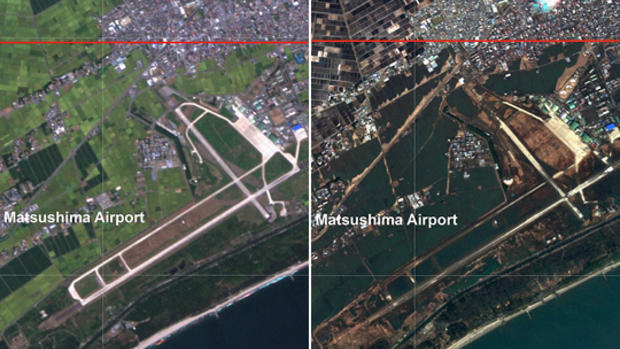Cousteau: Tsunami debris an environmental threat
The floating trash from Japan's devastating tsunami is now halfway across the Pacific Ocean. Scientists expect some of it to reach Hawaii in the next couple of weeks, and the West Coast in a year or so. As much as 100,000 tons of debris could wash up on U.S. shores.
Up to five percent of tsunami debris could reach America
Video: Japan tsunami debris hits U.S. coast
Complete Coverage: Disaster in Japan
Check out John Blackstone's report on the debris and where it is likely to wash ashore below.
The most concerning issue about the floating debris may be its content. Philippe Cousteau, an environmental advocate and grandson of famed explorer Jacques Cousteau, said on "CBS This Morning" the debris field is now widespread and may contain dangerous substances.
"There could be hazardous waste, certainly dangerous materials that are floating in that debris field," he said. "It's very, very difficult (to remove these items) because of the nature of the way the oceans work and how spread out over thousands of miles that debris is. It's really difficult to go in and remove any of that debris effectively. A lot of it right now is just a wait-and-see game and it's kind of scary. It reminds us of this bigger issue of ocean pollution."
Cousteau is president of Earth-Echo International, a non-profit organization working for environmental issues.
The debris, initially concentrated off Japan, was at one time being tracked by satellites, Cousteau said. Now, however, it's so spread out that it's very difficult to accurately track by GPS.
"It's really a relatively new, unpredictable science," Cousteau said. "... A lot of people forget that the oceans are a dynamic place and that there are so many different currents and eddies and wind patterns (that) can affect them. It's almost impossible to predict with any extreme accuracy where the different debris will end up."
Cousteau added, "(The tsunami that hit Japan) was an unpreventable disaster. It's still affecting the lives and livelihoods of millions of people in Japan. It's still an environmental and social disaster. But marine debris, as a whole, is preventable. This is a stark reminder of a much bigger problem. Marine debris is polluting and trashing our oceans all over the world."For more with Cousteau, watch the video in the player above.
Philippe Cousteau provided the following exclusively to CBSNews.com:
As we approach the one-year anniversary of the earthquake and tsunami that devastated the region around the Fukushima Daiichi Nuclear Power Plant, my thoughts are very much with the people of Japan who continue to recover and rebuild from this disaster.
A year later, we continue to hear many stories about the human and environmental impact of the aftermath. Most recently we are learning of the resulting 3 to 4 million tons of marine debris that washed into the ocean in Japan, a small percentage of which is floating toward the Pacific coastline of the United States.
The Japanese earthquake and tsunami was a human tragedy and an unpreventable natural disaster. But the trash that finds its way into our ocean every day is preventable. The debris from the Japanese tsunami is a small part of the larger problem of ocean trash. By removing and reducing the amount of trash in our ocean and waterways, we can help ensure that the ocean is more resilient in the face of unavoidable natural disasters. Common items like plastic bags, bottles, and cigarette butts discarded long distances from the coastal areas find their way into waterways and rivers and ultimately end up in the ocean, creating a growing problem for marine habitats, resources, and all of us who depend on them for survival.
My organization EarthEcho International (in conjunction with partners including Toyota USA Foundation, Participant Media, Discovery Education, and Ocean Conservancy) has created tools and resources for young people to do something about this issue of trash. It is one small way that young people can take control of the future, starting in their own backyards, schools, and communities. From students and educators to parents and community leaders, EarthEcho provides resources and tools to help people make a positive difference in their communities and beyond. The good news is it's something we can all start today. Coordinate a waterway or park cleanup in your community, create an awareness campaign at your school about the effects of plastic bottles, and practice safe disposal methods in your home.
As we reflect back at the devastating events of a year ago where so much was beyond control, it's an opportunity to look at what is in our control every day to ensure a brighter future.
Visit WaterPlanetChallenge.org to start your efforts today.
